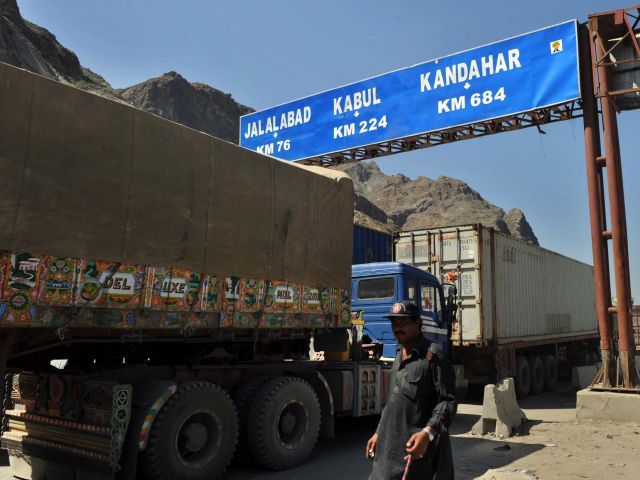Businessmen are moaning the loss of hundreds of thousands of dollars following Pakistan’s closure of its border with Afghanistan on February 16, 2017.
The border closure is hurting business in the region severely as it represents one of the most lucrative trade crossings in South Asia. Cross-border trade ranges from supplies for Nato troops in Afghanistan to Afghan goods transiting through Pakistan destined for international markets, said senior Pakistani customs officer Samad Khan.
Ziaul Haq Sarhadi, senior vice-president of the Afghanistan/Pakistan Joint Chamber of Commerce, said that the annual trade target has dropped from $2 billion to $1.5bn because of border closure. Sarhadi added that the trade has a potential to grow to $4bn on annual basis, provided bilateral relations are cordial.
The two countries share a 2,400-kilometer (1,500-mile) Durand Line. Earlier this month, former Afghan President Hamid Karzai said that Afghanistan would never accept the Durand Line as an international border raising fear on the Pakistani side of the border.
The trade between the two countries comprises of construction material, meat, and poultry, fresh and dry fruits. Sarhadi pointed out that border closure has severely affected small traders.
Following the last month’s border closure, more than 2,000 trucks have been stranded at the Torkham crossing on Afghanistan’s north-west border. It is undecided as to when the Pakistani government will reopen the border.
Azrakhsh Hafizi, a member of the international relations committee of the Afghan Chamber of Commerce, emphasised that the two countries need to take steps to promote regional cooperation agreement.




